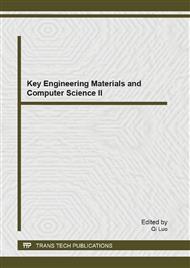p.726
p.732
p.736
p.742
p.749
p.754
p.760
p.766
p.772
Cache-Enabled Metadata-Aware Storage in Linux Systems
Abstract:
Hybrid storage systems integrate slower HDDs with faster SSDs to improve overall performance. To this end, various research efforts have investigated how to use SSDs as cache for HDDs. One of them proposes to cache only metadata blocks because all IO requests are accompanied with the requests to the metadata blocks before issuing the requests for the data blocks. However, our evaluation of the method could not confirm the claimed improvement. It motivated us to modify the method to integrate the caching functionality. The implementation of the proposed method in the Linux systems required to address several challenging issues. The evaluation results showed that the proposed method improved the performance by at least 90% over the original scheme. It implicitly means that caching the data blocks has more significant impact on performance than the metadata caching.
Info:
Periodical:
Pages:
749-753
DOI:
Citation:
Online since:
July 2013
Authors:
Price:
Сopyright:
© 2013 Trans Tech Publications Ltd. All Rights Reserved
Share:
Citation:


